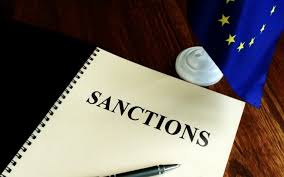Discussions are ongoing about a potential partial suspension of European sanctions on Syria during a planned meeting of European Union foreign ministers tomorrow, Monday.
According to three diplomats and a document obtained by Reuters on Sunday, January 26, the EU plans to suspend sanctions on Syria related to the energy and transportation sectors. However, no agreement has been reached on easing restrictions on financial transactions.
Diplomats view the transportation sector as vital for enabling Syria’s airports to operate at full capacity, which could facilitate the return of refugees. Meanwhile, energy and electricity are considered essential for improving living conditions, stabilizing the country, and encouraging citizens to return.
European diplomats have recommended prompt action to lift restrictions on sectors critical for economic stabilization and reconstruction in Syria, particularly energy and transportation. They have also proposed exploring options for reopening banking and investment relations with Syria. Any easing of EU measures, they suggested, should follow a phased and reversible approach, with regular assessments to determine whether conditions in Syria warrant further suspension. They emphasized the importance of respecting fundamental freedoms and achieving an inclusive political transition.
Reuters highlighted that while some European governments advocate for a swift suspension of sanctions, others prefer a more cautious and gradual strategy to ensure Europe retains its leverage.
If a political agreement is reached during Monday’s meeting of the EU’s 27 foreign ministers, European officials will begin drafting the technical details of the suspension.
A leaked European document from a few days ago suggests that certain sanctions will remain permanent, including those targeting the Assad regime, the illicit drug trade, and the arms trade.
On Wednesday, the EU’s foreign policy chief, Kaja Kallas, expressed optimism about reaching a political agreement to ease sanctions on Syria during the upcoming meeting.
The ministers are set to discuss the situation in Syria during the Brussels meeting.
“We are ready to apply a step-by-step approach and also to discuss alternative options,” Kallas stated, adding, “If we see that developments are going in the wrong direction, we are also prepared to adjust course accordingly.”
Current EU sanctions include a ban on Syrian oil imports and the freezing of any Syrian central bank assets held in Europe.
This article was translated and edited by The Syrian Observer. The Syrian Observer has not verified the content of this story. Responsibility for the information and views set out in this article lies entirely with the author.


